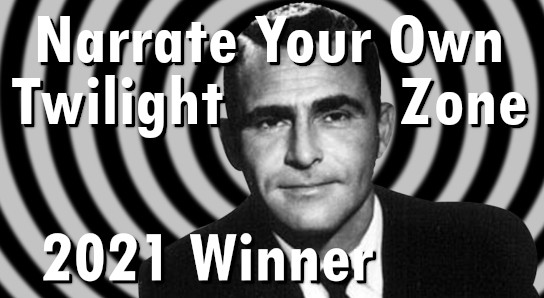Like choosing a spouse in The Elder Scrolls V: Skyrim, the civil war is a popular topic of player discussion. Which side should a Dragonborn choose, the Stormcloaks or the Empire?
I wanted to experience everything in the game, so I played through the civil war on both sides. My first Dragonborn, Zephyr the Imperial Nightingale, sided with the Empire. My second Dragonborn, Silvara the Nord assassin, joined the Stormcloaks.
Skyrim offers a complex world in which both sides have their pros and cons. Players of any race can find justifications for joining either side or they can ignore the conflict completely. Within the game itself, there are events, books and characters that contradict each other, leaving things open to interpretation.
This is by no means an exhaustive examination of the civil war, just a look at some of the most common arguments for and against both sides that I’ve seen in fan forums and when speaking to other players.
I am not going to tell you which side is right and which is wrong. I am, however, going to point out when player assumptions are contradicted by in-game dialogue or Elder Scrolls lore.
Players are free to create their own version of events, called “headcanon” in fandom, or to create mods that change the story and game dynamics. For many people, that’s part of the fun, but those variations will not be discussed here.
To read part one and common reasons why players join the Stormcloaks, click here.
* * *
* * *
Common reasons players join the Empire
- Ulfric is a tool of the Aldmeri Dominion
- The Markarth Incident
- Ulfric killed High King Torygg
- The Stormcloaks are racist
- I’m not a Nord and/or I don’t worship Talos
- A united Empire could drive out the Aldmeri Dominion
Ulfric is a tool
These are the exact words of the Thalmor dossier on Ulfric Stormcloak, found in the embassy during the quest Diplomatic Immunity:
Status: Asset (uncooperative), Dormant, Emissary Level Approval
Description: Jarl of Windhelm, leader of Stormcloak rebellion, Imperial Legion veteranBackground: Ulfric first came to our attention during the First War Against the Empire, when he was taken as a prisoner of war during the campaign for the White-Gold Tower. Under interrogation, we learned of his potential value (son of the Jarl of Windhelm) and he was assigned as an asset to the interrogator, who is now First Emissary Elenwen. He was made to believe information obtained during his interrogation was crucial in the capture of the Imperial City (the city had in fact fallen before he had broken), and then allowed to escape. After the war, contact was established and he has proven his worth as an asset. The so-called Markarth Incident was particularly valuable from the point of view of our strategic goals in Skyrim, although it resulted in Ulfric becoming generally uncooperative to direct contact.
Operational Notes: Direct contact remains a possibility (under extreme circumstances), but in general the asset should be considered dormant. As long as the civil war proceeds in its current indecisive fashion, we should remain hands-off. The incident at Helgen is an example where an exception had to be made – obviously Ulfric’s death would have dramatically increased the chance of an Imperial victory and thus harmed our overall position in Skyrim. (NOTE: The coincidental intervention of the dragon at Helgen is still under scrutiny. The obvious conclusion is that whoever is behind the dragons also has an interest in the continuation of the war, but we should not assume therefore that their goals align with our own.) A Stormcloak victory is also to be avoided, however, so even indirect aid to the Stormcloaks must be carefully managed.
Some players side with the Empire because the Aldmeri Dominion supports the civil war. I’ve heard several statements along the lines of: “The Thalmor are the real enemy, and if they want Ulfric to rebel, then rebellion can’t be right.”
The Thalmor are “behind this unrest in Skyrim,” says Fasendil, an Altmer dissident who opposes the Dominion and serves as a commander in the Imperial army (you can find him in the Rift).
However, the dossier above also says a Stormcloak victory is to be avoided. The Dominion wants the Empire wasting time and resources in Skyrim. It wants the Stormcloaks angry at the Empire. It wants both of them destroying each other.
So ending the conflict — either way — is probably for the best.
But the line of the dossier that really bothers me is this: “After the war, contact was established and he has proven his worth as an asset.”
An “asset”? Far as I can tell, it’s unclear to what extent Ulfric has been in contact with the Aldmeri Dominion since his capture, torture and escape. Ulfric is called “uncooperative,” yet direct contact “remains a possibility.” He is also referred to as “dormant.”
How would Vignar, who called the Emperor a puppet of the Thalmor (see part one), feel about Ulfric also being a puppet? Or Galmar, who’d rather “die before elves dictate the fates of men,” or other Stormcloak supporters? They have no idea that their strong, heroic leader is an ongoing “asset” who was “broken” in their prisons.
As far as I know, there’s no way to discuss the dossier with anyone in the game. Though, in reality, it would be a powerful tool to undermine Ulfric’s leadership and possibly unite Skyrim and Cyrodiil to throw out the Thalmor for good.
The Markarth Incident
Markarth was built by the vanished Dwemer and serves as the capital city of the southwest area of Skyrim known as The Reach. During the events of TESV: Skyrim, this region is controlled by Nords. The Reachmen (typically of the Breton race) labor at the mines and smelters, live in the slums, and exist under threat of having their property confiscated (for example, see the land-owner Ainethach in Karthwasten).
The Reachmen believe the Reach is rightfully theirs. During the Great War, they rose up, threw out their Nord overlords and ruled their own independent kingdom for two years.
Hrolfdir, the Nord jarl driven out of Markarth at that time, asked Ulfric Stormcloak for help, and promised him free worship of Talos — a violation of the White-Gold Concordat peace treaty between the Empire and the Aldmeri Dominion — as payment for retaking the city.
The Bear of Markarth book relates that every official who worked for the Reachmen in Markarth was put to the sword by Ulfric and his men, even after surrendering. It also says:
Native women were tortured to give up the names of Forsworn fighters who had fled the city or were in the hills of the Reach. Anyone who lived in the city, Forsworn and Nord alike, were executed if they had not fought with Ulfric and his men when they breached the gates. “You are with us, or you are against Skyrim” was the message on Ulfric’s lips as he ordered the deaths of shopkeepers, farmers, the elderly, and any child old enough to lift a sword that had failed in the call to fight with him.
Some players dismiss this account as Imperial propaganda, but it’s unknown to what extent the game devs consider this to be accurate or inaccurate information.
Nepos the Nose will tell the player, “Ulfric and his men came. Those of us who didn’t run were executed, except for myself, my king, and a handful of others.”
In Cidhna Mine, a prisoner named Braig tells his story:
“I had a daughter, once… The Nords didn’t care who was and who wasn’t involved in the Forsworn Uprising. I had spoken to Madanach once, that was enough. But my little Aethra didn’t want to see her papa leave her. She pleaded to the Jarl to take her instead. And after they made me watch as her head rolled off the block, they threw me in here anyway, to dig up their silver.”
Thongvor Silver-Blood, a Nord, says that Ulfric reclaimed the Reach from “those heathen natives.” His disdain for the Reachmen’s religion sounds very similar to the Thalmor disdain for Talos.
Are the Reachmen any different from the Nords, for wanting independence and religious freedom? Are the Nords any different than the Thalmor for denying and oppressing them?
The Thalmor eventually found out what happened in Markarth, and Ulfric and his men were imprisoned, sparking the Stormcloak rebellion and civil war.
Thongvor Silver-Blood reports that Ulfric used his Thu’um, his shout power, when he recaptured Markarth. But the Markarth Incident was not the only time Ulfric Stormcloak used his shouts to further his own cause.
Ulfric murdered High King Torygg
The death of High King Torygg takes place just before the game begins. Some players interpret the event as a show of Ulfric’s strength and leadership, while others view it as evidence of his self-serving ambition and treachery.
Sybille Stentor, the court magician of Solitude, has much to say about the death of the high king, so I’ll let her tell you:
“Ulfric showed up at the gates of Solitude requesting an audience. We thought he was here to ask Torygg to declare independence. By the time we realized Ulfric was here to challenge Torygg… it was already too late. By Nord custom, once the challenge was issued in court, Torygg had no choice but to accept. Had he not, Ulfric would have had cause to call a new moot and a new vote for High King.
“Torygg had some martial training, of course, but it mattered little that day. When Ulfric’s lips parted, when he unleashed the power of the Thu’um… That Shout, that ancient and terrible tongue… ripped Torygg asunder…
“The whole court was in attendance. I’ve seen much in my time, but that was a gruesome day… Ulfric needed a symbol. Someone he could defeat that represented the Empire, the White-Gold Concordat, the banning of Talos worship. Torygg’s father Istlod had held Skyrim together for nearly twenty-five years. When he died, Torygg became that symbol… the moot voted to make Torygg High King of Skyrim. But Ulfric was at that moot, continually talking about Skyrim’s independence in terms just shy of treason. I don’t think Ulfric knew how much Torygg respected him for that.
“If Ulfric had asked Torygg directly to stand up, to declare independence, Torygg might have done it.”
Roggvir, who is executed as soon as the player enters Solitude because he helped Ulfric leave the city after killing High King Torygg, uses his last words to defend Ulfric:
“There was no murder! Ulfric challenged Torygg. He beat the High King in fair combat. Such is our way! Such as the ancient custom of Skyrim, and all Nords!”
Some characters disagree that it was “fair combat” and see the Thu’um as an unfair advantage, since it takes many long years to learn. Ulfric himself says he spent almost ten years at High Hrothgar, learning to shout. The power does not come naturally to him because he’s not a Dragonborn.
But, this use of the Thu’um violates the Way of the Voice, the philosophy he’d been taught by the Greybeards.
Shouts were given to the Nords by the goddess Kynareth during the Mythic Era, thousands of years earlier, in order to fight the dragons and dragon priests who enslaved mankind.
When the Nords invaded Morrowind during the First Era and were annihilated at the Battle of Red Mountain, a great Tongue named Jurgen Windcaller spent years contemplating their defeat. He came to the conclusion that the Gods had punished the Nords for their arrogant misuse of the shout power to conquer others rather than to defend themselves. Jurgen developed his philosophy, the Way of the Voice, and built the High Hrothgar monastery.
If you mention to Ulfric that he shouted the king to death, he will clarify how he killed Torygg:
“Not entirely true, though not entirely false either. Any Nord can learn the Way of the Voice by studying with the Greybeards, given enough ambition and dedication. My shouting Torygg to the ground proved he had neither. However, it was my sword piercing his heart that killed him.”
It is exactly “ambition,” however, that the Way of the Voice cautions against, teaching that shouts should be used to worship the gods and for times of “true need,” like fighting dragons.
In an in-game conversation, Ulfric will defend his actions by saying:
“I challenged him in the traditional way, and he accepted. There were many witnesses. No ‘murder’ was committed. True, he didn’t stand a chance against me. But that was precisely the point! He was a puppet-king of the Empire, not a High King of Skyrim. His father before him perhaps, but not Torygg. He was too privileged and too foolish, more interested in entertaining his queen than ruling his country.”
If you encounter High King Torygg in Sovngarde, he will say:
“When Ulfric Stormcloak, with savage Shout, sent me here, my sole regret was fair Elisif, left forlorn and weeping. I faced him fearlessly, my fate inescapable, yet my honor is unstained. Can Ulfric say the same?”
I’ve heard some defend Ulfric’s honor by pointing out that he can be found in Sovngarde if killed. But according to the lore book Sovngarde, a Reexamination, the afterlife can be entered by any Nord who dies valiantly in combat. Ysgramor told Skardan Free-Winter, in the book A Dream of Sovngarde, (found in the Pawned Prawn in Riften), “a Nord is judged not by the manner in which he lived, but the manner in which he died.” So, it may be possible to die in combat and go to Sovngarde, without living an honorable life.
Jarl Balgruuf of Whiterun has this dim view of Ulfric Stormcloak:
“Do you think Ulfric really cares about Skyrim’s independence, or the welfare of its people? I promise you, he doesn’t. He’s nothing more than a barbarian renegade, whose lust for power has cost the lives of countless innocents.”
Many characters call Ulfric a hero. Does a hero use the Thu’um to murder his king and usurp his throne? Does a hero enter a city under false pretenses, violate the trust of his fellow jarls, take unfair advantage of an ancient power for personal gain, murder his king, and then flee the city like a thief?
At the end of the civil war, if you join the Stormcloaks and take Solitude, general Galmar will introduce Ulfric as a “hero of the people, liberator and High King of Skyrim.” Ulfric will give a speech calling his Stormcloaks the true heroes, fighting for god and country, and will decline the mantle of High King until the Moot declares that title should be his.
But, Ulfric will then have an aside with Galmar:
Ulfric: “How’d I do?”
Galmar: “Eh, not so bad. Nice touch about the High King.”
Ulfric: “Thank you, I thought so, too.”
Galmar: “It’s a foregone conclusion, you know.”
Ulfric: “Oh, I know.”
Ulfric knows he will be High King. This exchange with Galmar makes his previous speech seem like populist pandering rather than the heartfelt sentiments of an honorable hero.
Jarl Balgruuf calls Ulfric “a dangerous and blood thirsty man.” Legate Rikke, once a close friend of Ulfric’s, calls him a “self-serving ego-maniac.” Brunwulf Free-Winter says that for Ulfric, “there’s two kinds of people in this world — Nords, and the folk beneath them.”
Skyrim belongs to the Nords
Argonians must remain on the docks and Dunmer are harassed in the Gray Quarter of Windhelm. Khajiit are not allowed to enter cities (unless that Khajiit is the Dragonborn). The Bretons are subjugated and forced to work in the mines for their Nord overlords.
For those reasons, players who chose Argonian, Dunmer, Khajiit or Breton races often side with the Empire. And there are players of all races who choose the Empire because of Stormcloak bigotry.
Brunwulf Free-Winter is a Nord living in Windhelm who will tell you:
“Whenever a group of marauders attack a Nord village, Ulfric is the first to sound the horn and send the men. But a group of Dark Elf refugees gets ambushed? A group of Argonians, or a Khajiit caravan? No troops. No investigation. Nothing. There’s a group of cutthroats out there right now that Ulfric doesn’t lift a finger to bring to justice, as long as they don’t threaten Nord land.”
Brunwulf calls the Stormcloaks “a bunch of narrow-minded bigots,” and says, “Don’t let Ulfric or some of these other short-sighted Nords bother you. Most of us are happy to welcome newcomers.”
If you join the Empire and end the civil war, Brunwulf will replace Ulfric as the jarl of Windhelm. Then, if you talk to Aval Atheron, a Dunmer merchant in the marketplace, he’ll say:
“Having a just and honorable man like Brunwulf in charge can only be an improvement. Unlike Ulfric, Brunwulf has shown a great willingness to work with the other races and make us feel more at home here.”
Despite the conditions in Windhelm, however, other jarls who support the Stormcloaks have diverse courts. For example, Jarl Laila Law-Giver in Riften has a Bosmer housecarl and a Bosmer court wizard. Jarl Korir in Winterhold has a Dunmer steward. Jarl Sorli, who replaces Idgrod Ravencrone if the Stormcloaks control Morthal, has an Argonian housecarl. Jarl Thongvor, who replaces Igmund if the Stormcloaks control Markarth, retains Calcelmo the Altmer as court mage, and the Imperial named Reburrus Quintilius as his steward. Those are very important positions, filled by non-Nords.
Interracial marriage doesn’t seem to be a problem for anyone in Skyrim. Rustlief the Nord blacksmith is married to Seren the Redguard in Dawnstar. Ulfberth the Nord is married to Adrianne the Imperial. Bolli the Nord is married to the Nivenor the Bosmer in Riften. Bierand the Nord is married to Sayma the Redgaurd in Solitude. A Dragonborn of any race can wed any of the in-game marriage candidates.
The game itself does not prevent any Dragonborn from joining the Stormcloaks. If the player speaks to Galmar Stone-Fist about joining the Stormcloaks and is not a Nord, Ulfric’s right-hand man will ask, “Why’s an (elf, cat, lizard, orc, Redguard, Breton, foreigner) want to fight for Skyrim?”
Galmar may be asked if he only accepts Nords, and he will explain, “You mistake me. I’m not saying no, just wondering about your intentions. We’re not looking for sellswords. The Stormcloaks need dedicated men and women who’re devoted to the cause and willing to die for it.”
However, Galmar also says, “I’m a man. Skyrim is man’s homeland. That’s a fact. A fact I’m proud of. There’s no shame in that. Read your history.” I don’t think he’s being sexist in this statement, he’s saying that Skyrim belongs to the races of Men – specifically Nords – and not Mer (Snow Elves, High Elves, etc).
I’m not a Nord and/or I don’t worship Talos
Every commander in the Stormcloak army is a Nord: Istar Cairn-Breaker, Yrsarald Thrice-Pierced, Hjornskar Head-Smasher, Gonnar Oath-Giver, Kottir Red-Shoal, Arrald Frozen-Heart, Kai Wet-Pommel, Frorkmar Banner-Torn, and Thorygg Sun-Killer.
By contrast, the commanders in the Imperial army are not only Imperial (Constantius, Taurinus Duilis, and Quentin Cipius), but also Altmer (Fasendil), Breton (Emmanuel Admand), Dunmer (Sevan Telendas), and Nord (Rikke, Hrollod and Skulnar).
For any player who isn’t a Nord, this may be reason enough for them to join the Empire. Bretons living in the reach would probably be against the Stormcloaks, because of what happened in Markarth. Orcs, Dunmer and many others who worship the Daedra may not be welcomed on either side.
There are also Nords who don’t worship Talos, such as Vilkas, a member of the Companions, who when asked about the civil war says:
“There are always good reasons to fight. I just wish this war had them. Who cares who worships what dead god?”
A united Empire could drive out the Thalmor
If you ask Solitude court magician Sybille Stentor why High King Torygg did not champion Skyrim’s independence, she will sum up the relationship between Skyrim and the Empire by stating:
“Because the Dominion is a sleeping beast that Skyrim cannot slay alone. Because many Nords are part of the Imperial army even now. Because the food and resources we get from the Empire are important to our people. Because even if we can’t openly worship him, Talos the god was once Tiber Septim the man, and this is his Empire. And Torygg wasn’t ready to let it fall apart.”
Legate Fasendil, a commander in the Imperial army, says:
“Ulfric and his thugs are stirring up trouble for their own agenda. The Empire is the only thing keeping the Dominion from walking all over Skyrim. It matters little if some of the people here are ignorant to that truth. They are still citizens of the Empire. It’s our solemn duty to protect them.”
Jarl Balgruuf is also a proponent of a united Empire. If he appears at the Thalmor Embassy during Diplomatic Immunity, he may say, “These Thalmor might not like to admit it, but as long as the Empire has Skyrim, the Empire has strength.”
After the Battle for Whiterun, if you join the Imperial side, Balgruuf will say that supporting the Empire is for mutual advantage.
“Any fool can see that. For centuries, we have benefited from the Empire’s protection, and prosperous trade with the south. In exchange, the people of Cyrodiil sleep peacefully, knowing their northern border is guarded by the fiercest warriors in all Tamriel.”
If you join the Legion, you can talk to Rikke and discover why she still supports the Empire:
“I am a loyal citizen of the Empire. My parents were Legionnaires, and I’ve followed in their footsteps. But more importantly, I am a daughter of Skyrim and wish to see her made whole again… I’ve been a daughter of Skyrim all my life. I love this land and her people. So do all the Nords that serve the Empire. Ulfric, too, once. He wasn’t always a self-serving ego-maniac. He fought in the Imperial army in the War against the Dominion. But Ulfric and his ‘Stormcloaks’ are deluding themselves. If there’s any hope of a long term victory against the Dominion, it’s in the Empire. The rebels are only inflaming the tension and weakening the Empire by distracting it from its ultimate aim.”
Whether or not they are correct, whether an independent Skyrim could stand against the Aldmeri Dominion or whether humanity will again become the slaves of elven masters, we don’t know.
Regardless of whether you side with the Stormcloaks or the Imperials, whether you join the Dark Brotherhood and assassinate Emperor Titus Mede II or not, the game does not tell us what ultimately happens to Skyrim, the Empire, or the Dominion.
Perhaps we will find out, someday, if they ever make The Elder Scrolls VI.
~ J.L. Hilton
Connect, support, comment or contact the author here

















